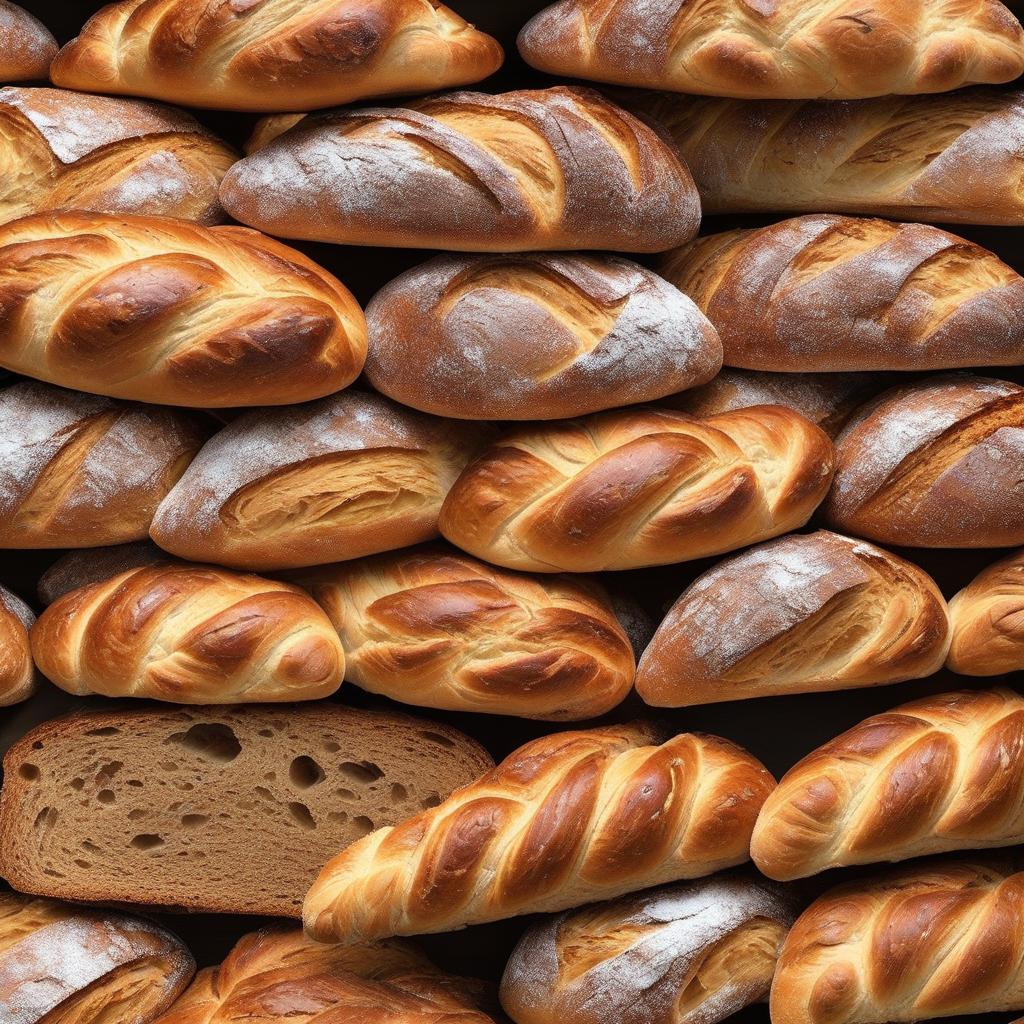Are you passionate about baking and dreaming of turning your love for artisanal bread into a thriving business? Starting your own artisanal bread bakery allows you to share your passion for delicious, handcrafted loaves with your community while pursuing your entrepreneurial dreams. In this comprehensive guide, we’ll walk through the step-by-step process of launching your artisanal bread bakery, from perfecting your recipes to setting up your storefront and delighting customers with your delectable creations.
Embracing the Artisanal Bread Movement
Understanding the Appeal
In recent years, there has been a resurgence of interest in artisanal bread, driven by a growing appreciation for traditional baking methods, natural ingredients, and slow fermentation processes. Unlike mass-produced bread, artisanal loaves are crafted with care and attention to detail, resulting in superior flavor, texture, and aroma. By embracing the artisanal bread movement, you can offer customers a unique and unforgettable culinary experience that sets your bakery apart from commercial bakeries and supermarkets.
Connecting with Your Community
One of the most rewarding aspects of owning an artisanal bread bakery is the opportunity to connect with your community and become a beloved local institution. From hosting bread-making classes and workshops to participating in farmers’ markets and community events, there are countless ways to engage with customers and foster a sense of community around your bakery. By building strong relationships with your customers and supporting local producers and artisans, you can create a loyal following and become an integral part of the fabric of your community.
Getting Started
Perfecting Your Recipes
The foundation of any successful bakery is its recipes. Take the time to perfect your artisanal bread recipes, experimenting with different flour blends, hydration levels, and fermentation techniques to achieve the perfect balance of flavor, texture, and crust. Consider offering a variety of bread types, including sourdough, ciabatta, baguettes, and whole grain loaves, to appeal to a diverse range of tastes and preferences. Don’t forget to develop recipes for pastries, croissants, and other baked goods to complement your bread offerings and provide customers with a complete bakery experience.
Sourcing Quality Ingredients
Quality ingredients are the cornerstone of artisanal bread baking. Seek out local, organic, and sustainably sourced ingredients whenever possible, including flour, grains, seeds, and natural sweeteners. Establish relationships with local farmers, millers, and suppliers to ensure a consistent supply of high-quality ingredients for your bakery. By prioritizing freshness, flavor, and provenance, you can create bread that not only tastes delicious but also reflects your commitment to sustainability and supporting local producers.
Investing in Equipment and Supplies
Investing in the right equipment and supplies is essential for setting up your artisanal bread bakery. While you don’t need a fully equipped commercial kitchen to get started, you will need basic baking equipment such as mixing bowls, dough scrapers, proofing baskets, and baking sheets. Consider investing in a quality bread oven or deck oven to achieve professional-quality results and impart a beautiful crust and crumb to your loaves. Don’t forget to stock up on essential ingredients such as flour, yeast, salt, and water to keep your bakery running smoothly.
Setting Up Your Bakery
Choosing a Location
The location of your bakery can make or break your business, so choose wisely. Look for a storefront in a high-traffic area with good visibility and foot traffic, such as a bustling downtown district or a busy shopping center. Consider factors such as parking availability, proximity to complementary businesses, and lease terms when evaluating potential locations. Keep in mind that a well-chosen location can attract customers and drive sales, while a poor location can hinder your bakery’s success.
Designing Your Space
The design of your bakery plays a crucial role in creating a welcoming and memorable atmosphere for your customers. Consider the layout, decor, and ambiance of your space, aiming for a cozy yet stylish aesthetic that reflects the artisanal nature of your bakery. Invest in high-quality displays, shelving, and signage to showcase your bread and pastries effectively and entice customers to make a purchase. Don’t forget to create a comfortable seating area where customers can enjoy their baked goods and linger awhile.
Obtaining Permits and Licenses
Before opening your bakery, you’ll need to obtain the necessary permits and licenses to operate legally. Research local zoning regulations, health department requirements, and food safety guidelines to ensure compliance with all applicable laws and regulations. Obtain a business license, food handler’s permit, and any other permits required by your local government. Consider consulting with a legal expert or small business advisor to navigate the permitting process and ensure that your bakery operates smoothly and legally from day one.
Baking and Selling Your Artisanal Bread
Establishing Your Brand
Building a strong brand identity is essential for standing out in the competitive bakery market. Develop a unique brand name, logo, and visual identity that reflects the artisanal nature of your bakery and resonates with your target audience. Communicate your brand’s values, story, and commitment to quality through your packaging, signage, and marketing materials. Consider incorporating sustainable packaging, eco-friendly practices, and community involvement into your brand identity to appeal to environmentally conscious consumers.
Marketing and Promotion
Effective marketing and promotion are key to attracting customers to your artisanal bread bakery. Develop a comprehensive marketing plan that utilizes a mix of online and offline channels to reach your target audience. Launch a website where customers can learn more about your bakery, browse your menu, and place orders online. Utilize social media platforms such as Instagram, Facebook, and Twitter to showcase your bread and pastries, share behind-the-scenes glimpses of your bakery, and engage with your audience. Consider partnering with local businesses, attending farmers’ markets, and hosting tasting events to raise awareness of your bakery and attract new customers.
Providing Exceptional Customer Service
Delivering exceptional customer service is crucial for building loyalty and repeat business for your bakery. Train your staff to greet customers warmly, answer questions knowledgeably, and provide personalized recommendations. Offer samples of your bread and pastries to customers to encourage them to try new products and flavors. Listen to customer feedback and incorporate suggestions for improvement into your bakery operations. By prioritizing customer satisfaction and going above and beyond to exceed expectations, you can build a loyal customer base and position your bakery for long-term success.
Conclusion
Starting an artisanal bread bakery is a labor of love that requires passion, dedication, and attention to detail. By perfecting your recipes, sourcing quality ingredients, and creating a welcoming storefront, you can create a bakery that delights customers and becomes a beloved fixture in your community. With effective branding, marketing, and customer service, you can attract a loyal following of bread enthusiasts and build a successful business that brings joy to customers one loaf at a time. So, roll up your sleeves, preheat your oven, and get ready to embark on an exciting journey as a purveyor of delicious artisanal bread and pastries!


